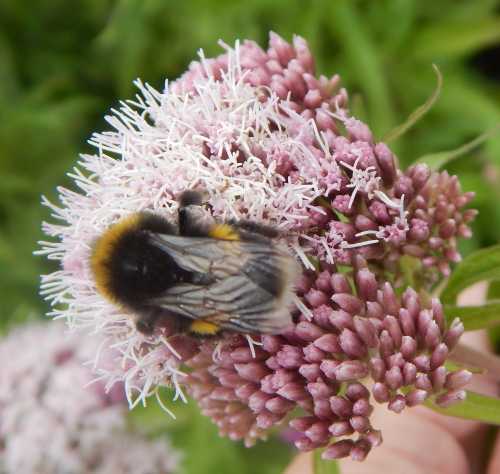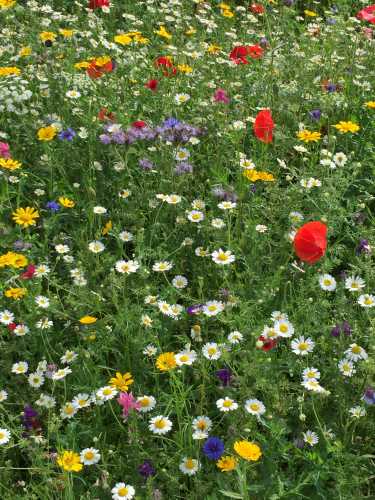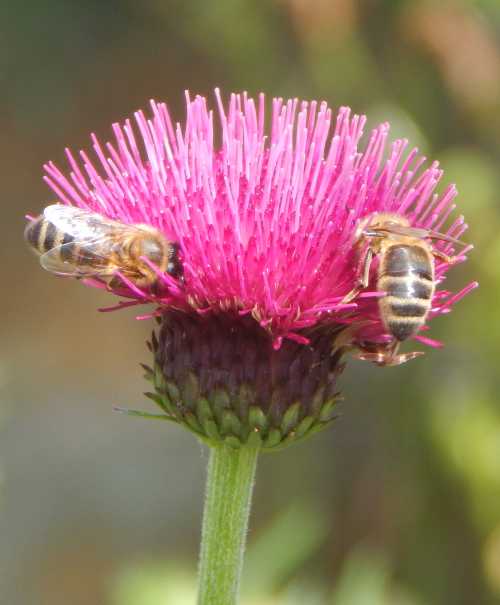Bee Nutrition and Floral Resource Restoration
Date: 1st April 2020
Summary of a paper by Anthony D Vaudo et al; Current Opinion in Insect Science 2015, 10:133–141.
The authors begin this review by stating some known facts:
- Bee populations are in decline. One of the reasons for this
is nutritional depletion due to land use intensification (creation of larger
fields and use of mono-culture – which reduces diversity and abundance of
flowering plant species).
- The effect of reducing the food available to bees (and other important pollinators) has been exacerbated by increased use of pesticides and herbicides.
Bee Nutrition - Why Bees Need Nectar And Pollen
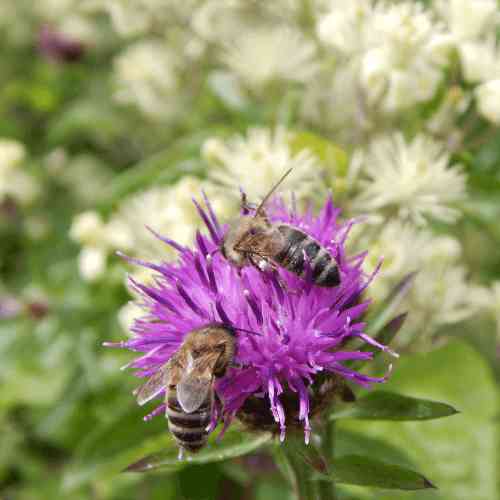 Honey bees on knapweed.
Honey bees on knapweed.Bees require nectar and pollen as food resources to provide carbohydrates, proteins, lipids and micro-nutrients for 4 main reasons:
- energy for foraging;
- micro-nutrients, lipids and proteins for normal physiological functions;
- reproduction and care of the brood;
- resilience to stress (e.g. times of lower nutrition availability) – such as for honey bee hives during winter.
Bees experience nutritional stress when their food choices
are limited (i.e. when their choices of host-plant species).
In other words, if the
variety of plants available to bees for food is reduced then they experience
‘nutritional stress’ – this could result in reduce colony sizes and reduced
pollination efficiency.
Both adult bees and larvae require a constant supply of carbohydrate, although the carbohydrate requirement of larvae (which are relatively inactive) is lower than that of adults.
Both adults and larvae also require proteins and lipids (gained from pollen) for a variety of physiological functions, for example as the precursors of essential hormones. Omega-6 and omega-3 fatty acids are also essential for bees.
The differing nutritional offering of flowers, and nutritional needs of bees
Nectar and pollen quantities and nutritional values vary between plant host species, and it is known that this influences bee foraging behaviours (it seems that bees balance their nutrition by visiting complementary food sources to ensure they get the best range of nutrition), but little is known about different nutritional requirements for different bee species.
The authors propose a rational approach to improving nutrition resource availability for bees, which should improve pollinator restoration by:
- Determining the different nutritional requirements of different types of bees and bee species;
- Determining how nutrition requirements influence foraging behaviour and host-plant species choice;
- Determining the nutritional quality of nectar and pollen from different plant-host species (and how this also affects how bees choose between host-plant species);
- Utilizing the above three factors to create targeted plant communities that are most appropriate for giving the best nutrition to ensure pollinator resource restoration and conservation.
What does this mean for bees in practice?
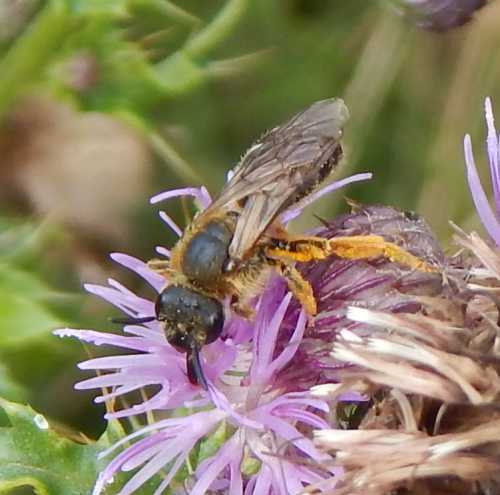 Orange-legged furrow bee.
Orange-legged furrow bee.The authors state that by learning about the specific food requirements of bee species, and by understanding the variations between
pollens and nectar from plants, that this might enable them to
understand how these differences affect the behaviour of bees whilst they are foraging
(i.e. which plants do they visit, and how often, and how far will they fly to
find the most suitable plants on which to feed).
They say that by using this combination of
knowledge it will be possible to ensure that the best balance of plant species
are available to enable bee species to recover their numbers and to thrive.
Conservationists call for better testing of insecticides, which inevitably means testing insecticides on bees.
During this process, some bees may die.
Is it okay to kill bees in order to test insecticides?
